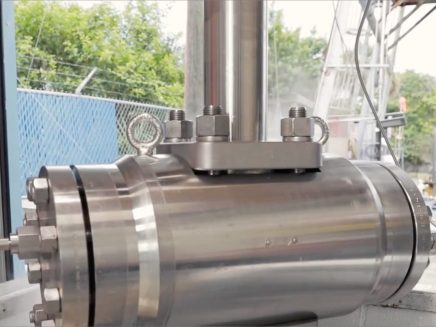Cryogenic systems play a crucial role in aerospace, oil and gas, petrochemical, electronics, and power generation, where extremely low-temperature tests are most desirable for systems that handle hazardous fluids.
PFC has been serving clients like NASA, Bechtel, and many other companies with its superior cryogenic testing services in certified facilities with highly trained technicians.
PFC has acquired and practiced expertise in cryogenic systems and testing for six decades. That is why industry leaders and major contractors turn to PFC for all cryogenic testing requirements.
Let's understand the cryogenic testing process, requirements, and applications in detail.
What is Cryogenic Testing?
Cryogenic testing is a specialized process to verify components as safe and leak-free under extreme conditions.
The test is most famous for valves of different kinds, including ball, gate, globe, check, and butterfly valves. However, it effectively applies to sensor components too.
When and why is it needed?
Failure of valves and sensor-related components is always expected. Statistics prove that a certain number of valve systems operating under continued pressure will eventually fail in some way during their lives. However, this failure rate depends on the type of the component and the pressure under which they operate.
The average acceptance rate of failure for valves ranges from 1% to 1.6% within 4 to 5 years.
Cryogenic testing is required to identify such failure probabilities (possible leakage spots or cracks) in piping accessories like valves and other components.
The test can be applied to newly fabricated components but is also excessively used to test welded areas of repaired valves or other parts.
How does Cryogenic Testing help?
Cryogenic testing thermally stresses the metal and enlarges any potential voids or cracks to make them easier to detect with the help of Helium leak testing.
The Process
Cryogenic testing involves submerging the test component in liquid nitrogen. For instance, the mechanical component (a valve) is first purged with helium gas. Then, the valve is mechanically lifted and placed in the cryogenic test tank. Then, the tank is filled with liquid nitrogen at a temperature of -320°F (-196°C).
The valve is then stabilized so that it reaches the same temperature as the liquid nitrogen. After stabilization, the cryogenic valve is then pressurized with helium and any leak is measured with a gas detector. Internal leakage tests are performed while the valve is submerged in LN2.
Since valves are put through a series of follow-on tests, the test valve is left indoors to reach room temperature and be prepared for other tests.
Why are Third-Party Cryogenic Tests better?
Individual manufacturers and operators often set their test standards. Hence, even experienced and trained test providers are likely to influence test results. So, it's better to hire a third-party test provider that can adhere to consistent standards.
Adhering to standards ensures the most significant possible relevance and usability of test results.
Moreover, specialist third-party test contractors can also create customized cryogenic testing procedures for different components or systems.
That is why it is always advisable to work with a qualified, professional cryogenic testing service provider.
Benefits of Cryogenic Testing
Approximately half of the failures related to pressurized systems and pipelines are valve-related failures. Since valves control or limit the pressure in a system, a loss might upset the process or cause equipment failure and fire.
Such high-pressure leaks might also endanger the personnel and bystanders since most industrial piping systems have hazardous and flammable fluids circulating inside.
Hence, cryogenic testing is crucial since it highlights possible leaks or cracks in valves and sensory equipment.
Test results not only save expensive production assembly they also save numerous human lives involved in operations.
PFC – Reliable & Safe Cryogenic Testing Experts
Due to the hazardous nature of cryogenic systems and testing operations, safety is of paramount importance at all times. PFC's trained technicians and test experts provide reliable test data with utmost safety precautions.
Our specialist testing area is equipped with a dedicated control room and the latest safety protection tools.
PFC performs cryogenic & cold shock testing to the following specifications:
| 54000-GT08 | 54000-GT12 |

